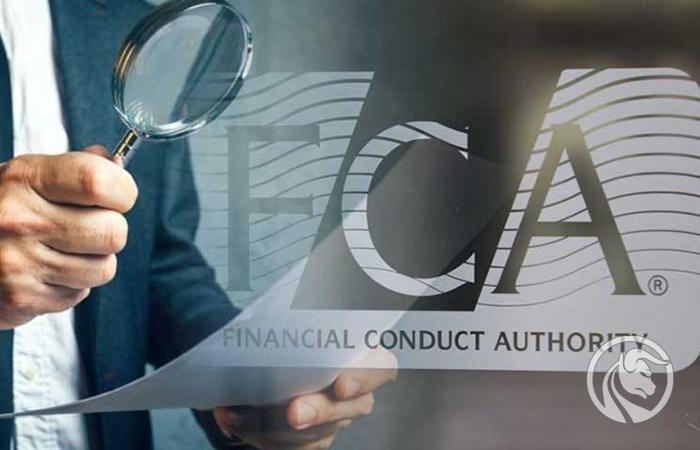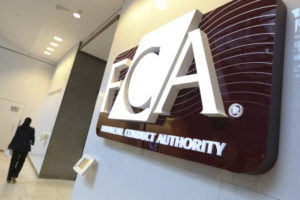Financial Conduct Authority (FCA) - British market regulator
The Financial Conduct Authority is undoubtedly one of the most recognizable institutions in the world that deals with the regulation and supervision of the capital market. The scope of its activities can be compared to the Polish Financial Supervision Authority (KNF), but in terms of the number of cases and the effectiveness of their resolution, it stands out from the whole of Europe. Not only the numerous warnings issued by this body bear witness to its dynamic actions. The Financial Conduct Authority is responsible not only for the British financial sector. The London Stock Exchange (London Stock Exchange), international financial institutions and banks, brokers or investment funds are associated in the so-called City. It is the largest financial center in the world that is under the supervision of FCA.
An undoubted advantage of the Financial Conduct Authority is that it operates independently of the British government. Therefore, he is free from politics and can freely regulate and supervise the financial market without top-down guidelines. Therefore, the question arises, how is the commission financed? Well, it stays with the fees of entities from the financial services industry registered in the United Kingdom.
A brief history of FCA
The history of the Commission is not very long. This organ was established 1 on April 2013 year. Previously, FSA (Financial Services Authority) was responsible for the proper functioning of financial markets and their supervision. In turn, it was preceded by The Securities and Investments Board Ltd (SIB), which was created on 7 June 1985 year. It was created on the initiative of the British Chancellor of the Treasury. A year later, based on legal regulations under the name Financial Services Act 1986 part of the statutory regulatory powers of the treasury chancellor has been transferred to SIB. Along with their transfer, the role of the institution as a supervisory body has increased significantly.
The next major reforms took place only after 1990. During this period, several scandals came to light, which ended with the collapse of one of the largest banks in Europe - Barings Bank. It was then noted that the need to eliminate self-regulation of markets and introduce an entity that would be associated with the tasks of smaller institutions. 28 October 1997 the year the name of The Securities and Investments Board Ltd has changed to the Financial Services Authority. A few years later, exactly in the 2001 year, a new law came into force Financial Services and Markets Act 2000. Its task was to systematize the supervisory regulations and clearly and precisely define the tasks of the control body.
In the second half of the year 2004, the tasks of the FSA were extended to include the supervision of a dynamically developing mortgage market. In turn, in 2005, exactly January XUMUMX, insurance brokers came under his control.
19 December 2012 year Financial Services Act 2012, which created FCA, received a royal sanction and came into force on 1 April 2013 year. Under the Financial Services Authority law, it was replaced by the Financial Conduct Authority. Pursuant to the new regulations, the tasks aimed at maintaining the stability of the financial market also affected Bank of England. Since April 2013, three entities have been responsible for the control and regulation of markets: Financial Policy Committee of the Bank of England, Prudential Regulation Authority and Financial Conduct Authority.
Tasks and activities of FCA
The Commission has a number of very broad powers to regulate and control all financial products and services. It dictates standards and defines the legal framework in which financial instruments are to operate on the British market. The FCA also received the powers to conduct its own investigations in the field of fraud and crime, directed not only against all organizations and companies, but also to private individuals.
A year from the creation of FCA exactly 1 April 2014, specially appointed on behalf of the commission committee, Office of Fair Trading, was given the task of controlling and supervising the consumer credit sector.
Audit The Financial Conduct Authority covers all banks operating in the United Kingdom. The committee's activities are aimed at preventing unfair treatment of clients, unfair competition and help in early identification of potential threats. In addition, the bodies are subject to insurance companies. According to recent data, over ten thousand companies (with such a business profile) registered in England are regulated by FCA. It is worth mentioning that the commission keeps a register of public companies, which also means the control of their financial statements. What's more, independent financial advisors are also subject to the FCA.
The annual FCA budget for the 2017-2018 period was 600,3 million pounds sterling. The current president of the board (CEO) of the British regulator is Andrew Bailey, who previously served as the deputy of the Bank of England.
Penalties imposed by the Financial Conduct Authority
At the end of March 2019, the FCA awarded the biggest penalty in its history. It was imposed on one of the most dynamic investment banks in the world - Goldman Sachs. The entity had to pay over £ 34 million (about $ 45 million). He was fined for failing to comply with the information obligation (under the MiFID directive).
On the pages of Forex Club in the department List of warnings We regularly publish FCA announcements regarding new positions on the "black list" and financial penalties imposed by the British regulator, which are related to the Forex / CFD / binary options market. We have to admit that the "British PFSA" is not idle :-).






















![Forex Club – Tax 9 – Settle tax on a foreign broker [Download the Application] Forex Club - Tax 9](https://forexclub.pl/wp-content/uploads/2024/02/Forex-Club-Podatek-9-184x120.jpg?v=1709046278)
![Trading View platform – solutions tailored to the needs of traders [Review] trading view review](https://forexclub.pl/wp-content/uploads/2024/03/trading-view-recenzja-184x120.jpg?v=1709558918)
![How to connect your FP Markets account to the Trading View platform [Guide] fp markets trading view](https://forexclub.pl/wp-content/uploads/2024/02/fp-markets-trading-view-184x120.jpg?v=1708677291)
![How to invest in ChatGPT and AI? Stocks and ETFs [Guide] how to invest in chatgpt and artificial intelligence](https://forexclub.pl/wp-content/uploads/2023/02/jak-inwestowac-w-chatgpt-i-sztuczna-inteligencje-184x120.jpg?v=1676364263)


![Izabela Górecka – “Success on the market depends not only on knowledge, but also on emotional stability” [Interview] Izabela Górecka - interview](https://forexclub.pl/wp-content/uploads/2024/04/Izabela-Gorecka-wywiad-184x120.jpg?v=1713870578)
![WeWork – the anatomy of the collapse of a company valued at $47 billion [WeWork, part II] wework bankruptcy story](https://forexclub.pl/wp-content/uploads/2024/04/wework-bankructwo-historia-184x120.jpg?v=1711729561)
![Adam Neumann – the man who screwed up Softbank [WeWork, part AND] adam neumann wework](https://forexclub.pl/wp-content/uploads/2024/04/adam-neumann-wework-184x120.jpg?v=1711728724)





![How to transfer shares to another brokerage office [Procedure description] how to transfer shares to another brokerage house](https://forexclub.pl/wp-content/uploads/2024/03/jak-przeniesc-akcje-do-innego-biura-maklerskiego-184x120.jpg?v=1709556924)
![The most common mistakes of a beginner trader - Mr Yogi [VIDEO] Scalping - The most common mistakes of a beginner trader - VIDEO](https://forexclub.pl/wp-content/uploads/2024/03/Scalping-Najczestsze-bledy-poczatkujacego-tradera-VIDEO-184x120.jpg?v=1711601376)
![Learning patience: No position is also a position - Mr Yogi [VIDEO] Scalping - Learning patience - No position is also a position - VIDEO](https://forexclub.pl/wp-content/uploads/2024/03/Scalping-Nauka-cierpliwosci-Brak-pozycji-to-tez-pozycja-VIDEO-184x120.jpg?v=1710999249)
![When to exit a position and how to minimize losses - Mr Yogi [VIDEO] Scalping - When to exit a position and how to minimize losses - VIDEO](https://forexclub.pl/wp-content/uploads/2024/03/Scalping-Kiedy-wyjsc-z-pozycji-i-jak-minimalizowac-straty-VIDEO-184x120.jpg?v=1710336731)



















